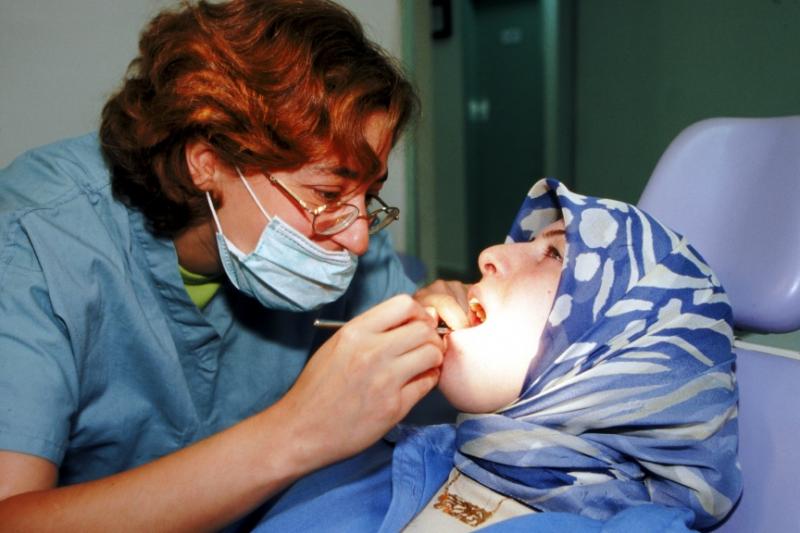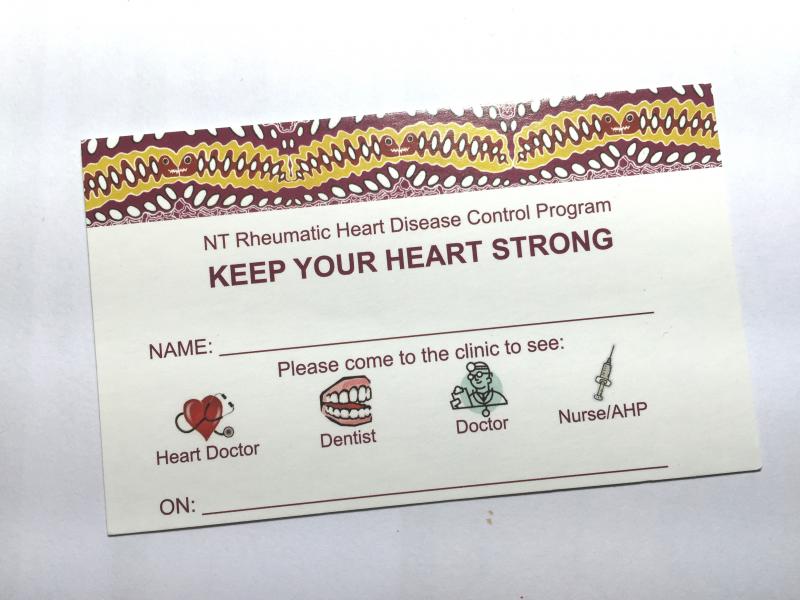Dental health
RHD increases the risk of infective endocarditis (IE), a serious bacterial infection of the heart valves. In developing countries, infective endocarditis is a significant cause of death for people with RHD.
The bacteria that cause IE are often found in the mouth and excellent dental hygiene is needed to keep teeth and gums healthy and to reduce the risk of IE. Some people with established RHD will also need antibiotic prophylaxis prior to dental procedures to reduce the risk of IE. Detailed clinical guidelines on indications for dental prophylaxis have been produced by the American Heart Association.

2014 AHA/ACC Guideline for the Management of Patients With Valvular Heart Disease, A Report of the American College of Cardiology/American Heart Association Task Force on Practice Guidelines
Although there is a clear link between good dental care and RHD outcomes there have been few attempts to integrate dental care into RHD control and secondary prophylaxis. In Cambodia the La Chaine de l'Espoir Children’s Heart Hospital has a dental room located within the clinic to make sure children with heart disease have the best chance of healthy teeth. In the Northern Territory of Australia, appointment cards remind people living with RHD about the importance of attending dental appointments.

Traditional, faith-based or community healers
Traditional, faith-based or community healers practice in many parts of the world. People with pharyngitis, RF and RHD may consult traditional healers for diagnosis and management. For example, in Samoa, nearly 10% of people identified the ‘village healer’ as their first intervention for sore throat. In Cameroon 45% of people attending to hospital with heart failure (predominately from RHD) had already consulted a traditional healer.
Traditional healers can have an important role in minimising the delays in the treatment of sore throat and diagnosis of RF. Education and advocacy activities to engage traditional healers in timely diagnosis and management should be encouraged.





